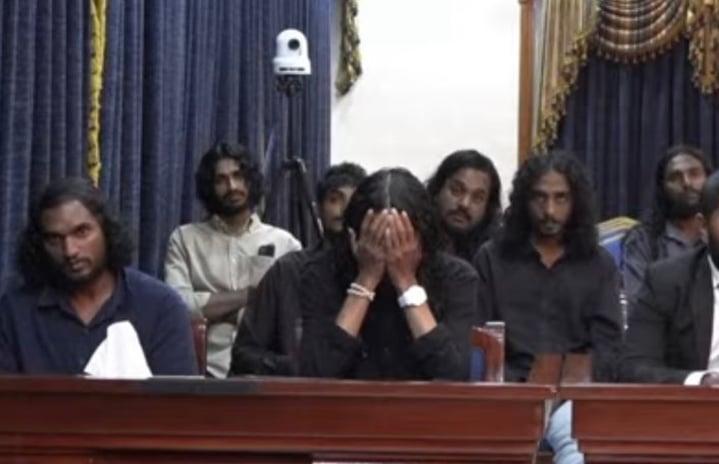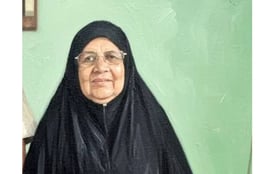Supreme Court has today overruled High Court's second ruling to release all accused in the murder of Mohamed Anas, placing them all in remand in custody until the end of trial.
In July 2017, Anas was murdered in Litus Service Centre, where he had fled to escape from a group of assailants that were following him.
Seven people were charged in the case. Charges of intentional murder were pressed against Ahmed Zayan, Asurumaage, Lh. Kurendhoo, Afrah Abdul Razzaq, M. Lonumidhilige, and Usman Shareed, M.Dhimishk.
Accomplice to murder charges were pressed against Junaih Abdulla, Nannarige, L. Gan, Thun'di, Simah Moosa, Male' registry no. 1746, Hassan Mahfooz, Western Villa, S. Feydhoo, and Mohamed Shaz, Gulfaamuge, Th. Kimbidhoo.
Seven years after Anas' death, the Criminal Court in February last year acquitted all seven, citing insufficient evidence.
The State then appealed the case at the High Court, asking for the seven to be held in remand in custody until the end of trial. However, High Court earlier ruled against holding them in custody. Therefore, the prosecution appealed the case in Supreme Court.
Two of the three Supreme Court judges ruled by majority that the High Court’s decision not to detain the accused was based on reasoning that fell outside the scope of the law. As a result, the Supreme Court ordered the High Court to reconsider the case and issue a new ruling.
High Court once again ruled in May this year that there was no legal basis to keep the accused in custody until the end of trial. In its decision, the court stated that the State had failed to present sufficient justification for detaining the seven individuals pending trial.
The State once again appealed the ruling at the Supreme Court. Judge Ali Rasheed's ruling in the case said that the accused individuals have existing criminal records, and they are accused of the most major crime in society. He further said that the evidence submitted supports the charges being pressed against them.
The Judge said that releasing them while there is evidence against them could create fear amongst the public, and the accused may pose a threat to society.
Judge Dr Ibrahim Mohamed concurred with this ruling.
The two judge majority overruled the High Court's ruling and ordered the accused be held in remand in custody until the High Court makes a further decision.
Judge Aisha Shujune Mohamed dissented, instead agreeing with the High Court ruling.
Judge Shujune maintained that the lower court had acquitted them because the submitted evidence was insufficient. She said that the perpetrators of the crime have not been determined in the case. She further said that although the ruling was appealed at the High Court, it has not been yet determined who the perpetrators of the crime are. As such, her view is that they cannot be held in remand in custody.




